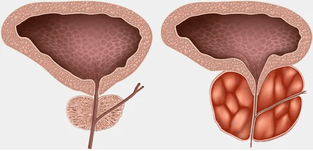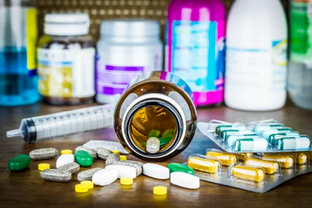
In the treatment of prostatitis, medication is most often prescribed. During the passage, the patient must take various drugs. Some aim to eliminate the symptoms that cause discomfort, while others deliberately act directly on the affected gland, thereby eliminating the most important thing-the root cause. At the same time, the strength of action of the drugs is different, because some drugs are aimed at eliminating acute diseases, while others are aimed at chronic diseases. Let's take a look at the most popular drugs used to treat prostatitis.
Types of drugs for prostatitis
All medicines prescribed by the attending physician can be conditionally divided into several categories according to the method of administration:
- Tablets and capsules-Oral, moderately absorbed by the body. For capsules, all ingredients reach their destination within a short time after the gelatinous shell is dissolved, so the absorption should be fastmany.
- Injection-It can be either a liquid preparation or a powder preparation, and then it is diluted in a working liquid that is usually an anesthetic, administered intramuscularly or intravenously, and the effect will take a few minutesSignificantly. . .
- Rectal suppositories (suppositories)-It has anti-inflammatory, antibacterial and analgesic effects. It is applied to the rectum when the patient lies on his side. In this position, it takes him about half an hour to makeThe drug is completely dissolved and full attention.
- Infusion-A group of drugs that have the greatest positive effect only when directly entering the affected prostate area. This method is used in a hospital setting because it is introduced through the urethra.
- Micro enemas-Usually, these drugs include non-drugs, such as herbal soups. They are not a substitute for drug therapy, but can be used as a good remedy for pain relief or prevention.

It is worth noting that certain types of drugs can be sold simultaneously in multiple forms, such as tablets and suppositories, so the attending physician must clearly indicate this feature.
The most popular medicine for treating prostatitis
The treatment of prostatitis with drugs is a very complicated process. It requires doctors to choose the right drugs. These drugs can not only relieve pain and eliminate symptoms in other manifestations, but also help eliminate the root cause of the disease. The disease itself can also have different origins, manifested in acute or chronic forms, causing various inconveniences to the patient, thereby limiting his position in natural affairs and leading to complete infertility.
Classic tablets, intramuscular injections and suppositories for rectal administration can be used to treat prostatitis. The choice of a drug directly depends on the urgency of delivering its components to the affected organ.
Additional tools
The treatment of prostatitis is not limited to a few drugs. Experts can also use other types of drugs in different categories.
Fluoroquinolones
Fluoroquinolones are antibacterial drugs used to treat tuberculous prostatitis. These funds are used in complex ways, and can prescribe a course of four or more drugs for patients.
Cephalosporins
Cephalosporins are antibacterial drugs that target specific types of bacteria.
These drugs have a wide range of effects and are targeted. The need to use one or another drug directly depends on the form of the disease and the cause of its occurrence.
Macrolides
Macrolides are rarely used to treat prostatitis because they are designed to fight against certain types of bacteria, such as mycoplasma and chlamydia. By the way, diseases such as chlamydia are usually accompanied by prostatitis, so doctors will immediately prescribe several tests to detect early prostate problems.
In the acute manifestation of prostatitis, the attending physician may immediately prescribe several different types of drugs. This method allows you to effectively cope with the symptoms and the disease itself.
Analgesics
The vast majority of analgesics are prescribed in the presence of acute pain syndrome, which is an essential companion for chronic but more common chronic diseases of prostatitis. It is strictly recommended not to use this group of drugs outside the framework of drug treatment aimed at eliminating the disease, because the human body will quickly adapt to them and achieve analgesic effect, so the dose needs to be increased, which may negatively affect the liver and kidneys. The duration of analgesics depends on individual circumstances.
Alpha blockers and muscle relaxantsThe main task of these drugs is to relieve bladder spasmodic muscles, tension in the urethra, and reduce pressure in the pelvic area. These remedies help to eliminate discomfort and normalize the urination process.
Immunomodulator
In the case of prostatitis, such preparations basically contain natural ingredients-extracts based on bovine prostate tissue. No matter which drugs are used, they all have a common principle of action, which can:
- Slow down the process of inflammation;
- Increase the tone of smooth muscle and bladder wall;
- To minimize the possibility of blood clots;
- Improve the blood circulation of the prostate;
- Reduce prostate volume.
Immunomodulators can be used for a variety of diseases, including chronic prostatitis, acute non-infectious prostatitis, and prostate adenoma.
In addition, such funds are actively used for prevention purposes, which helps to avoid the occurrence or recurrence of diseases.
Vitamins and dietary supplements
Funds that fall into these categories can reduce inflammation, improve fluid drainage and eliminate congestion. The demand for such drugs is also due to the insufficient intake of beneficial nutrients in the human body, especially during the process of taking antibiotics.
Prostatitis is a very complex disease and should only be treated by real experts. It is absolutely not recommended to choose drugs by yourself, because using this method will lead to infertility, impotence and even increased risk of cancer. The use of drugs for prostatitis without consulting a doctor may lead to the fact that it is impossible to eliminate the disease without surgery. In addition, since an accurate diagnosis cannot be made, self-treatment becomes complicated because it requires appropriate equipment and knowledge.
It should also be remembered that most drugs used to treat prostatitis are highly toxic and some types are not compatible at all. If you feel pain in the pelvic area during urination, defecation, or ejaculation, go to the toilet often and cannot empty your bladder normally, don't take risks-see a doctor. Therefore, you can not only prevent the adverse course of the disease, but also avoid the development of its chronic form, and you will have to live your life. In addition, your sexual function will not be impaired. If treated in time, you can have completely normal and healthy offspring.
























